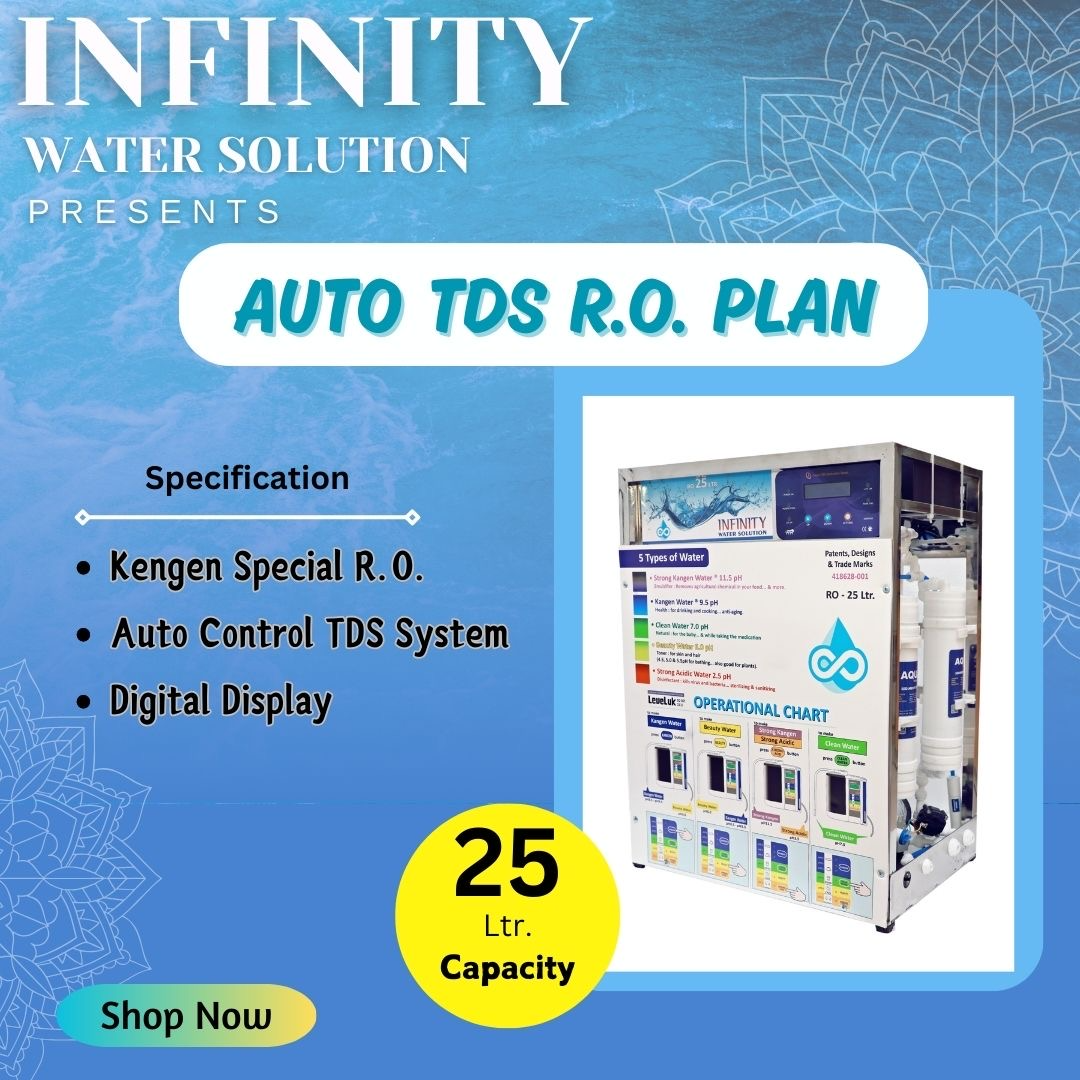
2025-03-26T04:42:12
Auto tds controller ro system manufactur in Rajkot auto tds controller ro manufacture in Rajkot Auto T D S Ro plant Manufacturee in Rajkot RO (Reverse Osmosis) plant quality refers to the effectiveness and efficiency of the reverse osmosis system in purifying water. The quality of an RO plant can be assessed based on several key factors: Water Quality Post-Treatment: The primary measure of RO plant quality is the quality of the treated water. This involves checking various parameters like Total Dissolved Solids (TDS), pH, turbidity, hardness, and the presence of contaminants such as bacteria, chlorine, and heavy metals. The water should meet the required standards for its intended use (drinking, industrial, agricultural, etc.). Recovery Rate: This is the percentage of feed water that is converted into purified water. A higher recovery rate indicates that the RO system is more efficient, but it must be balanced with the quality of water produced. Membrane Efficiency: The reverse osmosis membrane is the core component of the system, and its condition directly affects water quality. The membrane should effectively remove contaminants without excessive fouling, scaling, or degradation. Regular maintenance and cleaning are essential to maintain membrane efficiency. Energy Consumption: A high-quality RO plant should operate efficiently, with minimal energy consumption. Energy recovery devices, like pressure exchangers, can improve efficiency and reduce operational costs. Pre- and Post-Treatment Processes: Quality RO plants typically incorporate pretreatment (e.g., sediment filtration, carbon filtration, and softening) to protect the membrane and ensure optimal performance. Post-treatment processes (e.g., UV treatment, remineralization) may also be used to enhance the quality of the water after RO filtration. Maintenance and Monitoring: Regular monitoring of key parameters such as pressure, flow rates, and water quality is essential for ensuring consistent performance. A good quality RO plant will include automated systems for real-time monitoring and alarms for any deviations. Compliance with Standards: The RO plant should comply with local water quality standards and regulations. This could include standards from the World Health Organization (WHO), Environmental Protection Agency (EPA), or other relevant authorities.

Have a question? Ask here!
Required fields are marked *